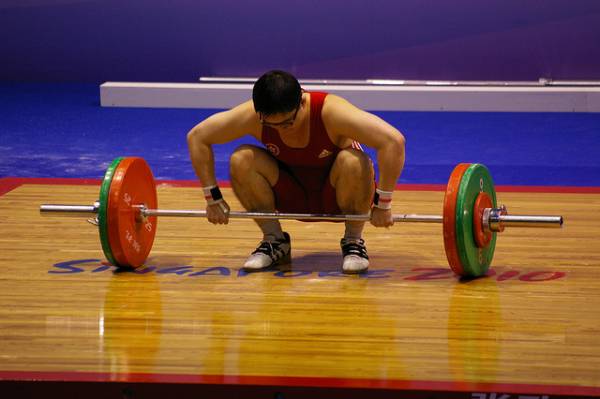Nowadays more lifters than ever are entering weightlifting competitions. Accordingly, many of these people are new to competition and they may or may not always know what is the best course of action on the day of the meet. So what should you do or not do on the few days of the year that you are competing?
Lifting in Your Hometown: How to Plan Your Day
As is often the case there is more than one school of thought on this question. The answers often depend on whether you are lifting at home or on the road. Each of these presents different scenarios that have to be taken into account when planning your competition day activities.
If you are lifting in your hometown, then you will have other activities that may be necessary that day. You might have some shopping to do, parents to deal with, or who knows what. Most competitions are on Saturday and that is the favorite day of the week for doing those things that cannot be done during the work or study week. One school of thought says that you should not do anything out of the ordinary that you would not do on any other day. The other school councils the opposite – make it a special day and don’t follow your usual routine.
Lifters have been successful in using both methods, so this makes your choice a little more difficult. The exact course of action you should take often depends upon your personality characteristics, as is true with many other factors in weightlifting. If you tend to get anxious before competition, then you will probably want to do a few other distracting things if your competition is later in the day. If the competition comes early, then this is all a moot point. Then you have to get ready for the competition as soon as you arise.
Lifting Late in the Day: Avoiding Anxiety
So let’s assume that the competition is either in the afternoon or evening. This gives an anxiety prone lifter all day to build up his or her anxiety if he or she does nothing but sit around and think about what could happen. In my youth I was just such a lifter.
I remember well one provincial championship that was also used as the trials for the prestigious Canada Games. The meet occurred right near Christmas and consequently at university exam time. With my unfailingly uncanny luck I had a final exam scheduled for the morning of the competition. Well, this certainly gave me something else to worry about, but it worked out well. I studied intensely for the last couple of nights before the exam especially the final one. I couldn’t even think of lifting at the time. Therefore little lifting anxiety developed.
To complicate matters, competition was to be held in a city nearly 200 miles away so I had a three-hour afternoon drive in front of me before I was to compete in the evening. However, this all worked to my advantage. I did very well on the exam and so was in an unexpectedly upbeat mood and far less prone to pre-meet anxiety. The three-hour drive in heavy traffic kept my mind on the road and not on the competition. I lifted well and qualified for the Games. But I was lucky because other times I had different circumstances where I had all day to think about the competition so would work myself into a bad psychological state.

Those lifters who are less anxiety prone and bigger risk takers might react the opposite way. Other chores during the day might distract them the wrong way so that they do not build up the excitement that allows them to try the big lifts. With nothing else to think about, they might react like caged lions and be ready to go by competition time.
The only way to find out what kind of lifter you are is to monitor yourself, especially in your early competitions. Find out which way you react, then plan your day according. Experiment a bit and see how you can make your own psychological characteristics work for you.
Lifting on the Road: How to Conserve Energy
If you are lifting on the road, then things are quite a bit different. Ideally, you will like to drive to your destination the night before the competition at a minimum. If your session starts later in the day, you will have a lot of time on your hands.
The first thing you have to worry about is your energy level. Whatever you do, you will not want to sap your energy. That only makes sense. However the opposite situation, that of lying around the hotel room all day, isn’t good either. That can lead to lethargy and stewing about what might happen in the competition. So you will want to occupy your brain, but not your body.
Again this is where being a student athlete has an advantage. You can bring along your books and get lost in your studies. If your school days are behind you bring along the latest Ann Rule murder mystery (my favorite). At this time you might be thinking of reading could also lead to lethargy, but usually it is better than watching television. You are at least working your mind. The same cannot be said for television.

After the Competition: How to Plan Your Journey Back
So much for the time before the competition. Let’s now talk about the time after the competition, especially if you are lifting out of town. The big concern here is in your drive home. There are two major pitfalls.
The main one is that after a heavy day of competition you are somewhat bagged and your reaction times might not be as quick as they were earlier in the day. If you have a lot of heavy traffic, it might be a better idea to stay the night and go back first thing in the morning. You will be fresher and often on Sunday morning traffic will be lighter as well. If you must drive home, it’s nice if you have others in the car to share the driving (and the costs).
Second, you have to consider any post-competition libations. Needless to say you must bed down for the night if there’s been any liquid celebrating after the competition. Back in the 1960s this kind of thing was practically the norm, especially in my neck of the woods. Most lifting parties could go on until two or three in the morning. Then some would try to drive the 200 miles home. Fortunately, this kind of thing is nowhere near as common nowadays. People are (hopefully) a little smarter. I remember reading of several weightlifter fatalities due to these very situations in years gone by. Don’t risk adding to them.
In any case, you have to consider what you are planning to do besides lifting on the day of the meet. This will determine your energy level as well as your psychological readiness to compete. Complacency and lack of consideration of all aspects of competition can cost you many kilos on your total.
Photos 1 & 3 courtesy of Shutterstock.
Photo 2 “Concentration” by Julie V. Attribution-NonCommercial License.






